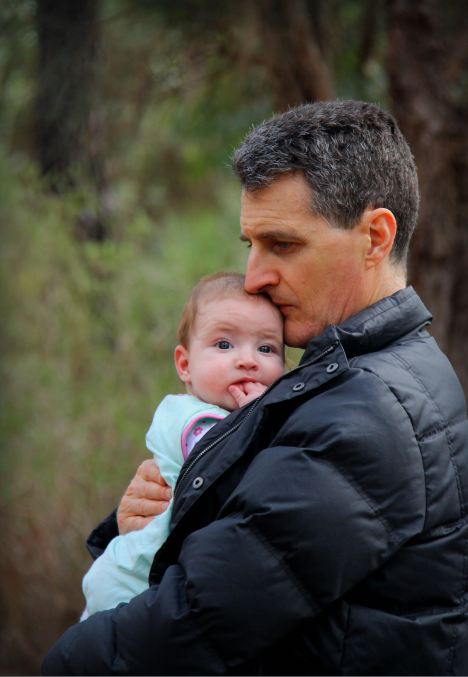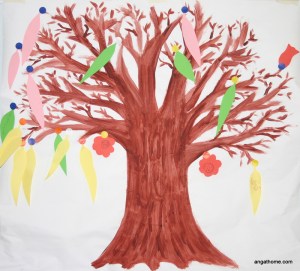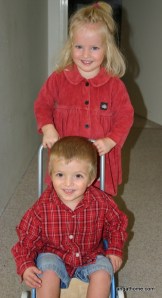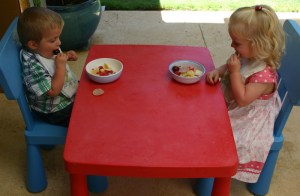
Your child’s eyes glaze over and the shutters go down. You get madder and the barrage of words gets louder and longer. Thus begins the parent lecture. Effective? Not usually. Do we all do it? Yep. Is there an alternative? Definitely.
First:
Stop lecturing and start giving calm, consistent, well thought-out consequences. Complete your If/Then chart and know ahead of time how you intend to deal with repeated wrong behaviours. Make sure your child knows what they should be doing in the given situation and train the virtue to counteract the vice. Ensure you have the foundations in place. Read great parenting book such as “Taming the Lecture Bug” by Joey and Carla Link.
Second:
Do most of your training in periods of non-conflict. See here and here.
Third; resign yourself to the fact that reminders will be necessary:
Behaviours do eventually move into the “needing immediate consequences” category, but lets face it, even as adults we don’t change built in patterns of behaviour overnight. (How many resolutions have you broken soon after making them?) Children need time to form new habits of behaviour. This is where family mottos come in.
While you are teaching your children what to do and why they should do it, use simple, catchy phrases that will remind them of this teaching. They need to be short and immediately bring to mind the lessons that you have covered.
For example, while we are working on kind speech we memorise bible verses, read character based stories, sing songs with words that remind us of the truths we are studying and use character based curriculum to delve further into the concept. Our catchy phrase is “lift others up” which comes from one of our memory verses; 1 Thess 5:11 “Therefore encourage one another and build one another up…”
When I hear that the tone of a conversation is starting to slide, I can briefly call out “lift others up” or ask “are you building one another up?” I can use an encouraging tone and have no need of consequences as the children have not yet stepped over the line so to speak. They know what this phrase means, they know they must make a change and they know that if they continue on the path they are on without making a change then consequences are ahead. Quick, easy and stress-free and often very effective.
The following are some of the mottos we use frequently in my family. Many of them are very short summaries of bible verses or biblical concepts that we have studied. We have used the full verse as memory work and discussed what they mean and brainstormed what they look like in action, talking about ways we can apply them in our own lives. When I give the one line lecture version it should bring to the children’s mind the full meaning of the original words, complete with what they should/could be doing in their current situation.
- Think it through
- Eat like a lady/gentleman
- Pot (short for the pot calling the kettle black)
- Let tomorrow worry about itself
- Do not let your voice enter a room before your legs do
- You are not responsible for other people’s behavior, only your own
- You can’t control what other people do. You can control how you react
- Thank you but we don’t need a third parent
- If you are bored I can find you something to do (hello cleaning job)
- Treat others the way you want to be treated
- Think of others
- Lift others up
- Leave it nice for the next person
- Your attitude determines your direction
- You have a choice – choose the right path
- Where are you on the slippery slope (From the Young Peacemaker curriculum)
- Be a peacemaker (From the Young Peacemaker curriculum)
- Put a guard on your lips
- Self-control
- Patience
- Anger doesn’t solve anything
- Lying always makes things worse
- Do not let your anger lead you into sin
- Don’t let your volcano explode (emotional outbursts)
- Being late is stealing other people’s time
- Make a good choice
- Pascoes stick together (Insert your family name)
- Work first, play later (or responsibilities first, play later)
- Stay on task
- No need to hold on to that, it won’t fall off (Little boy’s private parts)
- Room time is quiet time
- Go outside and get some sunshine
- Good, Better, Best
- Screaming is for emergencies
- Are you using your time well/wisely?
My friend Meredith recently spoke about the family motto concept at our GEMS group, so here are some of her favourites, plus a few from the other Mothers and several more I found on the net:
- Don’t pass it up, pick it up
- Straight away, all the way, with a happy heart
- I want never gets
- Watching is learning, learning is helping
- Keep your head, don’t panic
- Difficult does not mean impossible
- Leave it better than you found it
- Many hands make light work
- There is no better test of a man’s integrity than his behaviour when he is wrong (Marvin Williams)
- Show respect even to people who don’t deserve it, not as a reflections of their character, but as a reflection of yours
- You are free to choose. You are not free from the consequences of your choices
- Integrity is doing the right thing, even when no one is looking
- You get what you get and you don’t throw a fit or You get what you get and you don’t get upset
- Mistakes are proof that you are trying
- Practice makes progress
- Handsome is as handsome does – or pretty/beauty in place of handsome (J.R.R. Tolkien)
- If you are afraid to fail you will never do the things you are capable of doing (John Wodden)
- There is no substitute for hard work (Thomas Edison)
- Worry ends when faith begins
- Open your heart more than your mouth
- You can learn something new every day if you listen
- Even a child is known by his actions
- With God, nothing is impossible
- Strong people don’t put others down, they lift them up
- If you want to have a friend, be one
- Wrong is wrong even if everyone else is doing it. Right is right even when no one else is doing it.
- Anger is your biggest enemy, control it
- When you let anger get the best of you it brings out the worst in you
- Nobody makes you angry; you decide to use anger as a response (Brian Tracy)
- It’s ok not to know but it’s not ok not to try
- Just because you haven’t found your talent yet doesn’t mean you haven’t got one (Kermit the Frog)
- Open your mind before you open your mouth
- All things are difficult before they are easy
- There is a big difference between expressing your opinion and being rude
- It matters not what you are thought to be, but what you are (Publilius Syrus)
Some that your parents probably said to you that you may or may not want to start repeating:
- Hold your horses
- Pack up your bongos and let’s go (or was it just my Mum?)
- Life is not fair
- We don’t live in a tent
- If ……. jumped off a bridge, would you do it too?
- If you have nothing nice to say, say nothing at all
- Are your legs broken?
- What did your last slave die of?
- Business before pleasure
Do you use any mottos with your children that I haven’t included here? If you let me know I’ll add them to the list for others to share.

Filed under: Child training & behaviours | Tagged: behaviour, character, consequences, training | 3 Comments »




 Teddy training
Teddy training
















 Manners at times are becoming a lost art it seems. I am constantly amazed whenever we are around a large group of children how many of them simply do not think to say “please” and “thank you.” It horrifies me on rare occasions to catch my children amongst them!! Time for a clamp down and some re-training in our household!
Manners at times are becoming a lost art it seems. I am constantly amazed whenever we are around a large group of children how many of them simply do not think to say “please” and “thank you.” It horrifies me on rare occasions to catch my children amongst them!! Time for a clamp down and some re-training in our household!




